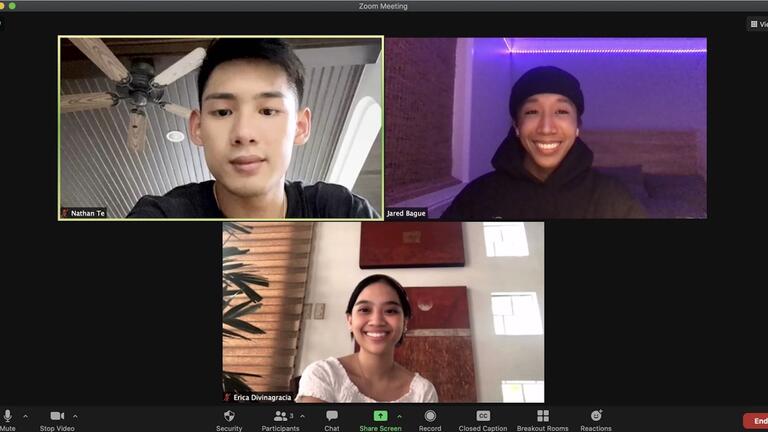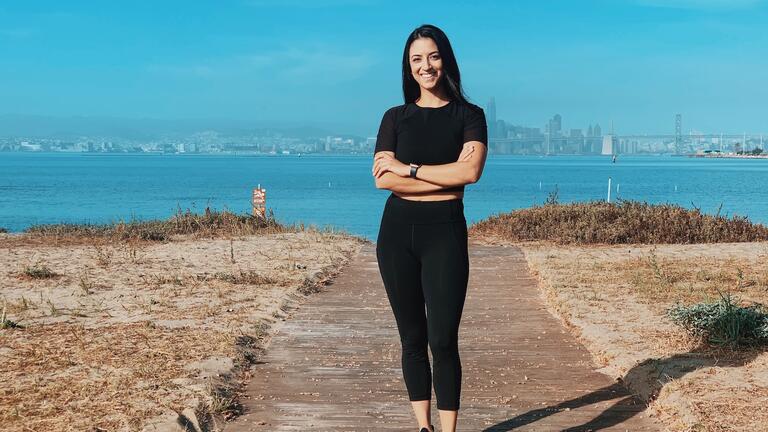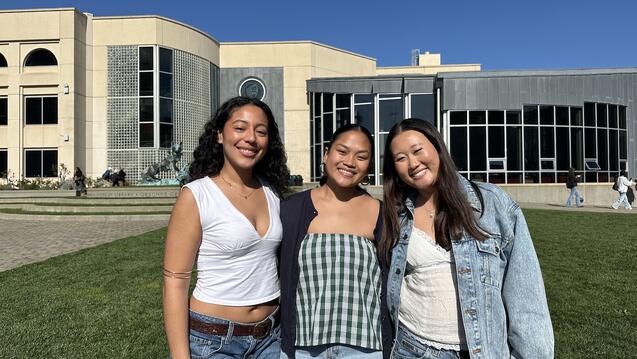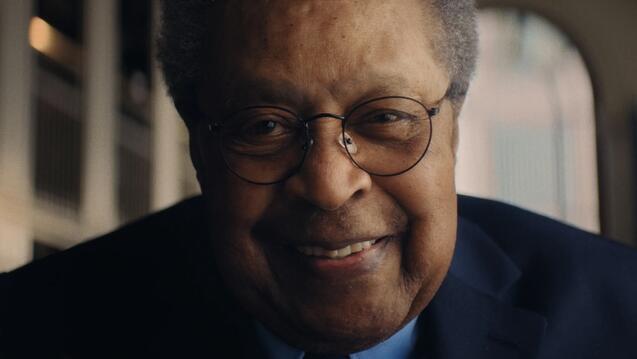Dons Give Back, Give Thanks
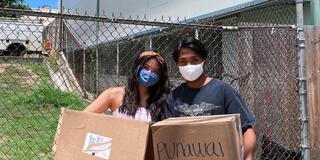
In this season of gratitude, five USF students and a recent graduate talk about the gift of giving.
Jared Bague ’22, Erica Divinagracia ’22, and Nathan Te ’22 helped feed frontline pandemic workers in the Philippines. Adrian Aguinaldo ’23 and Amanda Higashiguchi ’23 gave menstrual products to homeless people on Oahu. Leada Malek ’12 launched a physical therapy practice that delivers care to anyone, anywhere.
Why are you helping out?
Bague: We understood that communities around us were deeply hurting from the crisis. The last thing we wanted was for these frontline workers to worry about how they were going to fill their stomachs when they went home.
Erica, Nathan, and I met as part of Kasamahan, a Filipinx-American cultural organization at USF, and we were able to accomplish this fundraiser so efficiently because Nathan and Erica live in the Philippines and are seeing how COVID is affecting their neighbors and friends. In two and a half months we raised $4,325 to feed frontline workers through a Philippines-based organization called Frontliners Kitchen. This includes health care workers but also grocery clerks and others.
Aguinaldo: Homelessness is such a huge problem in Hawaii and because of COVID there are fewer human interactions, which limits the money and food homeless people receive. We figured if we gave homeless people the menstrual products they needed, they could use the money that they have on other necessities.
We saw this as an opportunity to better our community. I’m a nursing major, and I wrote about period poverty as a final exam for my rhetoric class at USF. I wanted to challenge myself to deal with this problem. In one month, we raised $5,000 and created 500 goodie bags that went out to seven homeless shelters and women's outreach programs.
Malek: At first, I offered free virtual consultations to frontline workers. As a health care worker with a degree from USF in exercise and sport science (now kinesiology), I knew I wanted to somehow contribute to the work our frontline workers were doing.
As the world of outpatient physical therapy remained frozen at the peak of the pandemic, I couldn't help but think of everyone at home needing physical therapy. So I started my own virtual practice to reach them so they could continue to improve from their injuries, staying both safe and physically active during these difficult times.
What motivates you to do good?
Aguinaldo: As a first-generation college student, my parents stressed the importance of education and the ability to provide for the less fortunate because they know firsthand how it feels.
Bague: What motivated us was to not only feed the stomachs of thousands of Filipinos but to also help people see that we can make a difference from wherever we are in the world. Even though we aren’t all together on campus, it is still possible to create waves of change and make this world a better place.
Malek: People deserve to live life doing the activities they love. I know I can help make that happen. So when the whole population is facing something so detrimental like the pandemic, I know I have a professional duty to help people maintain a certain quality of life for their health and well-being.
What are you grateful for?
Bague: I’m grateful for Kasamahan for helping me grow into the person I am today. When my grandparents immigrated here for a better future for our family, they left behind so many stories and traditions to assimilate to American culture. I grew up in a predominantly white area so I wasn’t able to freely express my Filipino traditions, in fear that I would be ridiculed. I grew away from my culture and didn’t want any part of it. It was only when I joined Kasamahan at USF that I really felt like myself for one of the first times in my life. I felt so seen and heard and understood — it was the most beautiful experience.
Higashiguchi: Adrian and I are grateful for having the basic necessities to live. To have a home, food on our table, and clothes to wear are things that most people take for granted when millions of people around the world don’t have the same opportunities that we do.
Malek: I’m grateful to have developed a passion for physical therapy and serving people — all kinds of people. I am grateful to have grown up in the Bay Area and to have studied in a city as diverse and accepting as San Francisco.
